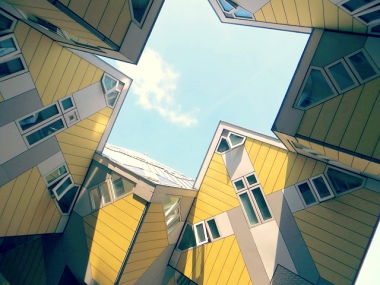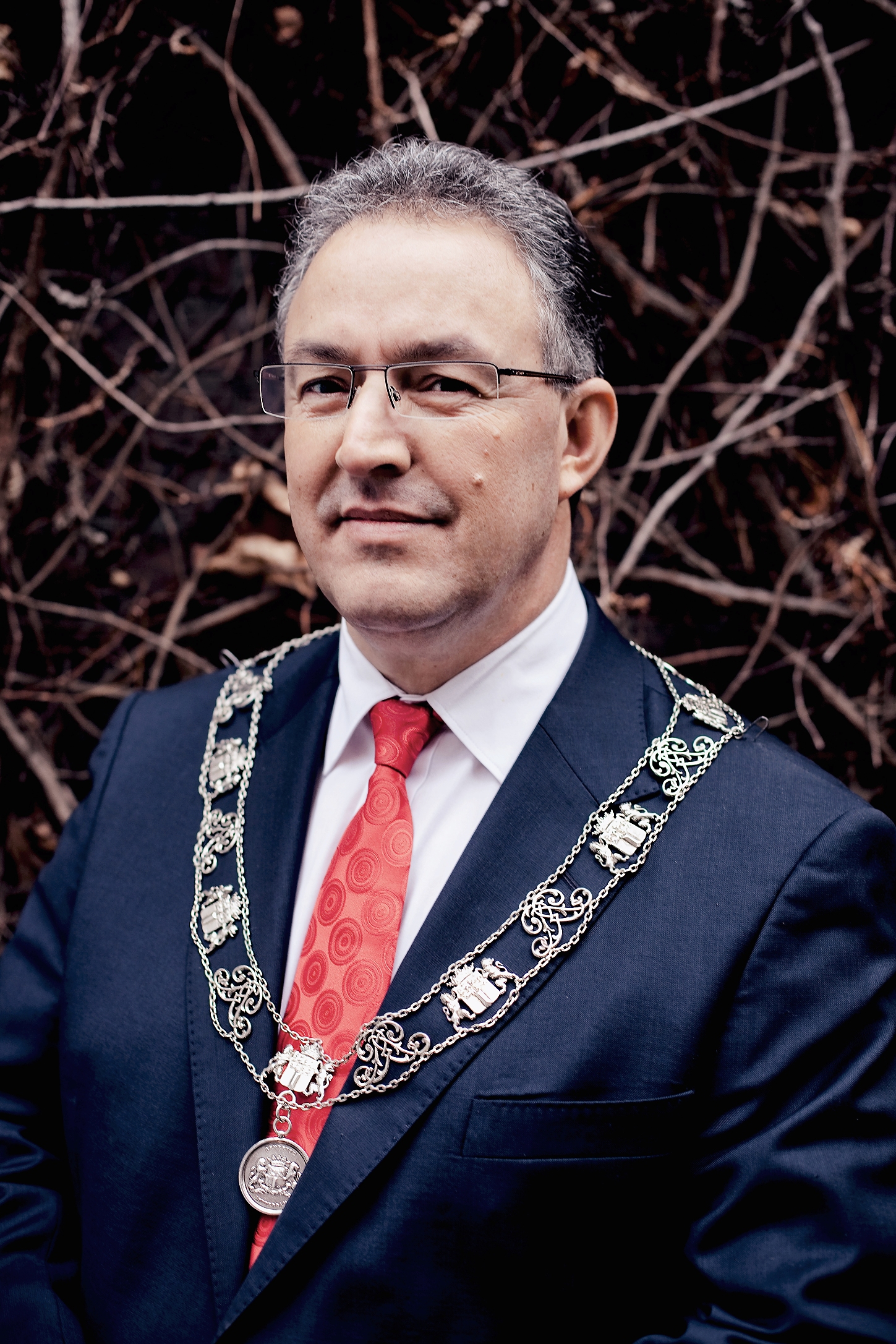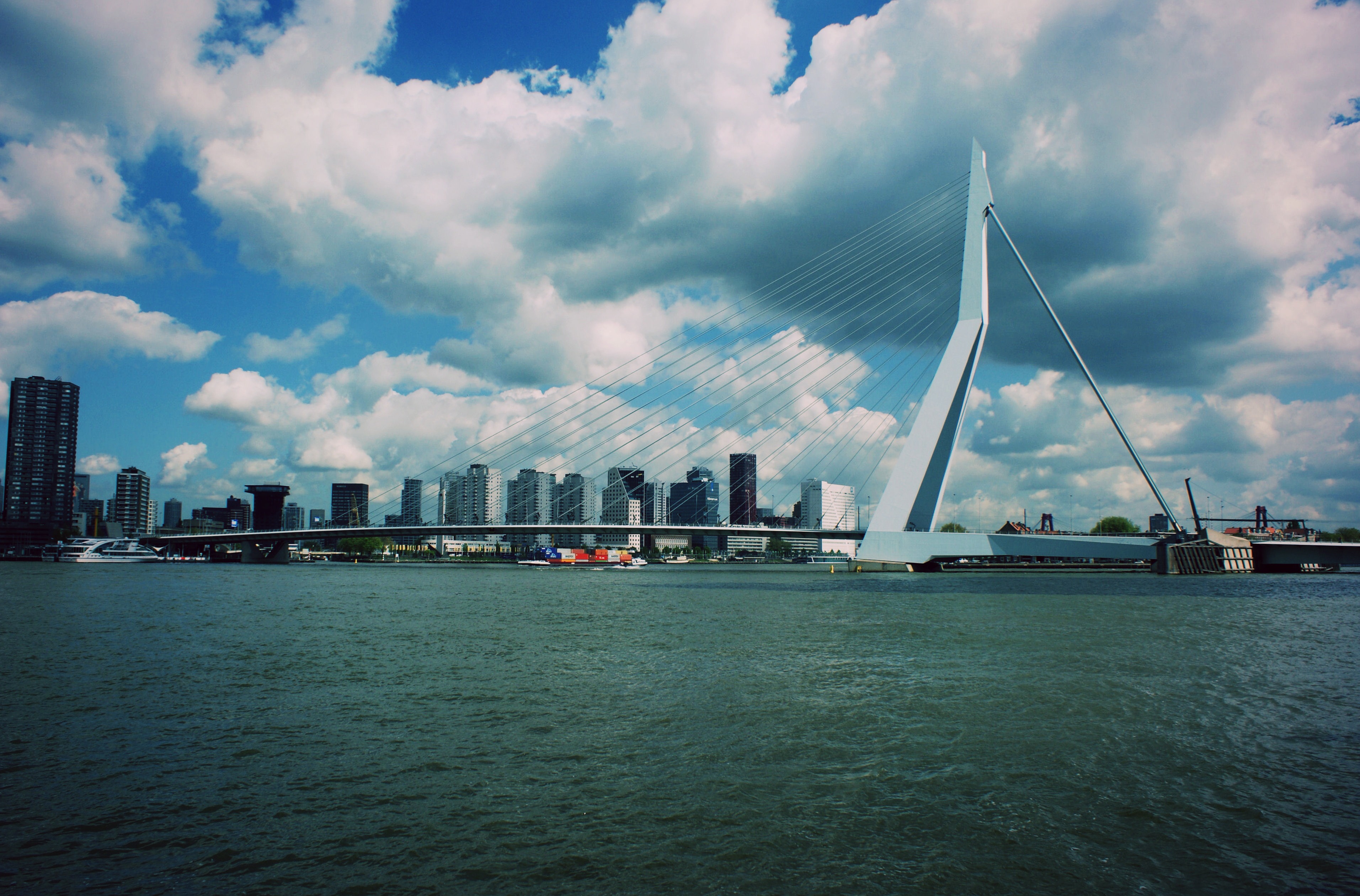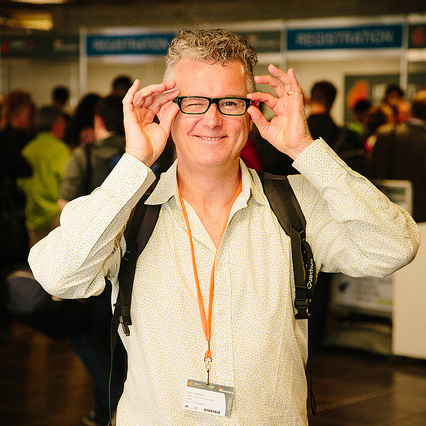Welcome to Rotterdam – from Mayor Aboutaleb
Edited on
09 October 2017Rotterdam will host the 3rd edition of the URBACT Summer University, between the 24 and 26 of August 2016. We’ll be bringing around 300 urban practitioners to the city, which is widely regarded as one of Europe’s pioneers in urban development. So, as part of our new series on city governance, we thought it would be good to speak in advance with the city’s mayor, Ahmed Aboutaleb, to hear his thoughts on what our participants can expect to experience.

URBACT: Thanks for finding time to speak with us, Mayor Aboutaleb. First of all, for those coming to Rotterdam for the first time, what are some of the key contextual things they need to know?
M. Ahmed Aboutaleb: Well, first of all, Rotterdam is a strong centre for innovation with strong (inter)national companies and SME’s, excellent schools and universities and rich cultural backgrounds amongst its residents. Recent OECD evaluations stress this potential. My city is a forerunner in innovative sustainable energy supply, putting Rotterdam in the top 5 of an indicative ranking of 50 of the world’s leading cities.
Of course, the city of Rotterdam is the second largest city in the Netherlands. It’s a large, young and diverse city, and somewhat unpolished. Rotterdam has always been an enterprising city, an attractive place for businesses, both on the national and international level. As a port Rotterdam has an open mind towards the new, inviting people from all over the world to contribute their talents and possibilities to the city.
It’s also an important knowledge based city due to the flourishing diversity of her inhabitants, businesses and research institutions.
Port activities are still an important driver for the city’s economy. In addition we see a strong Medical/Health care sector, and the presence of a vast cluster of innovative creatives in the city. Social in the sense that Rotterdam urges to raise its educational level, stimulating a more knowledge based economy. Spatial in the sense that we strive for a city layout that stimulates interaction, cohesion and sustainability both for residents and businesses.

URBACT:Rotterdam is currently working with Jeremy Rifkin around his concept of the Next Economy. Can you tell us what this means for Rotterdam, and what plans you are putting in place to address these new demands and opportunities?
Mayor: In the coming years, trends such as climate change, resource scarcity, digitization, robotics, reshoring, 3D printing, electric vehicles, etc. will play a decisive role in our economy and society. Combined with the ongoing urbanization, the focus of the 'next economy' is therefore increasingly shifting to urban regions in Europe, such as the metropolitan region Rotterdam The Hague.
This digital, circular network economy will bring about big challenges, but also offer opportunities for new activities in our continent. To flourish these opportunities, a high-innovation ecosystem is necessary with which European regions can position themselves internationally as attractive locations for the frontrunners.
The urgency to innovate is high and the development of new products and business models by making combinations between interrelated sectors, which will deliver the desired sustainable growth in Europe. Within the metropolitan region Rotterdam/The Hague, this idea of innovation is indeed already the practice.
The Roadmap Next Economy (RNE) as a catalyst will make a significant contribution for innovation and economic transition, and which will make not only my region a leader, but also Europe for the next 10 years. RNE will lead to a massive package of investments and projects which will create a fundamental economic transition of the European regions and which will boost employment growth at all levels.
URBACT: How well placed is the city to make this shift? What are the key assets you can mobilise?
Mayor: As a major logistic and economic centre, Rotterdam, commonly dubbed ‘The Gateway to Europe’, is well placed for this transition. It is a strong centre for innovation with strong (inter)national companies and SME’s, excellent schools and universities. Recent OECD evaluations stress this potential. Having Cambridge Innovation Center in Rotterdam is a great asset as well to stimulate innovations and start ups. My city is a forerunner in innovative sustainable energy supply ARCADIS sustainable Cities Index shows that Rotterdam is at top 5 of an indicative ranking of 50 of the world’s leading cities).
URBACT: What are the biggest barriers you face – and how can you address those?
Mayor: The power of the metropolitan region Rotterdam the Hague is its major economic diversity. Despite the proximity and complementarity of many strong economic sectors, cooperation between them are, however, still insufficient. In addition to this, Dutch regions, compared to other metropolitan regions in Europe are competitively lagging behind. The urgency to innovate is therefore high. I strongly believe that the development of new products and business models by making cross over combinations between related sectors could yield the desired sustainable growth here.
Also the differences increase globally: between poor and rich within the cities, between the city and countryside, and between urban regions. In the future, cities across the globe will have a harder task to work on the necessary social advancement of people. But they can do this. With targeted policies, cities are becoming the breeding ground for new generations.
URBACT: Rotterdam has a strong reputation for co-design and citizen involvement. How will the city authority work with others to encourage this during this major transitional period?

Mayor: Our policies, whether social, environmental or economic, are based on co-creation. Co-design and citizen involvement is very important for building trust in our neighbourhoods. And trust is crucial for our development in every sense of the word. Trust is not only crucial for building cohesive societies, but it is also a determinant of economic development. Studies show that 10% more trust equals 1 % Gross domestic product.
We invest in co-design and citizen involvement with the aim to create, which we call the “we society”. The creation of inclusive societies. We have managed to build a broad, strong common ground with social networks in every neighbourhood of the city and the effect is there for all to see: peaceful co-existence of all citizens. We just build a “community of Practice”.
How do we do this? We do so, for instance, through our 'the neighbourhood rules' initiative. Every four weeks, the chief constable and I visit a neighbourhood and talk with the residents about issues of security in the area. Together, we determine the main issues, which then become leading priorities for the police and the city.
But we also make agreements about what residents and entrepreneurs themselves should do to improve the neighbourhood. Because it's their game as well.
URBACT: As you know, we are particularly interested in urban regeneration and in South Rotterdam you have one of the biggest such projects in Europe, on a 3.3 hectare site. What are the headline transformations you expect to achieve there?
Mayor: Rotterdam South, over the last 6 decades, has become a place of settlement for immigrants with relatively limited perspective on employment or other (legal) forms of income, due to the low-cost housing in this area. The free flow of goods, services and persons in the EU may have further increased the influx of workers from other EU member states, with limited social security and short term labour contracts and families otherwise aspiring to generate income in Rotterdam. As a harbour city, Rotterdam is not unfamiliar with immigration. But, today’s influx and increased competition for the scarce goods, (decent) housing, work and public services weigh too heavy a toll on Rotterdam South. In this area of Rotterdam, over 200.000 residents are living on 33.100.000 m2 of which more than 13.000 people are job seekers and much of the housing is of poor quality. This is considerably higher than both the national and the local average and results in an environment in which young people may grow up feeling that it is socially acceptable not to work or be in school, dramatically reducing their outlook on living a rich and fulfilling life.
The programme’s aim is to elevate its output on socio-economic indicators to the average level in the 4 largest cities in the Netherlands, by 2030. An intensive, integrated, communal and long-lasting approach should result in an area that can be seen to be the economic engine for the greater Rotterdam Area and the Netherlands as a whole.
The initiative is a multi-facetted approach centred around the value of social programming in creating economic perspective. It has three distinct but attributing pillars:
First: Enabling talent
The potential of an active labour market on the Rotterdam Southbank can be part of the solution in dealing with an (nationally) aging population. In developing the talents of its young population a lot of attention is given to education, training, craftsmanship, life-long learning and the prevention of school dropout.
Second: Economy
The young population on the Rotterdam Southbank is to be schooled and trained to meet the labour demand generated in the high value sectors of harbour and harbour industry, of care and the medical sector and in that of creative industry.
Third: Housing and physical infrastructure
In 20 years time, one third of the housing stock (35.000 residences) is to be regenerated or replaced, including physical infrastructure.
URBACT: In an area with significant socioeconomic barriers, what are the key components of getting more South Rotterdam people into the labour market?
Mayor: The focus in Rotterdam South is simply on social programming as key in creating an economic perspective. For me, the programme is, as stated by the European Commission, a perfect example of a territorial active inclusion initiative with:
- a three-way (economy, housing and talent development) mutually reinforcing multifaceted strategy;
- multi-level governance, in which both national government, local authorities (municipal and districts), NGO’s, schools and industry (employers) adhere to one strategy and work together on relevant outcomes.
- employer engagement and improved regional labour market mobility;
- connecting education, training, labour market opportunity and high value economy;
URBACT: Youth alienation is a major challenge in many of Europe’s cities. Specifically, what are the city’s plans to tackle this risk in South Rotterdam?
Mayor: Qualification mismatch is the key barrier in the sustainable urban development of South Rotterdam. This part of the city has a disadvantage compared to the rest of Rotterdam and the country on a number of areas. In the focus areas of South Rotterdam, unemployment is at 21%, 32% of the children grow up in poverty and 39% of the children have parents with no or low formal education. First and second generation migrants make up 74% of the population in the focus areas of South Rotterdam.
In this context, young people in the area are driven by the cultural preferences of their parents to make study and career-related choices without realistic career perspective. The result is a persistent situation in which although the work is there, many of the 2.000 young people from South Rotterdam who enter the labour market per year are not being able to compete. This is the urban challenge many European cities face.
My solution is a career and talent orientation programme combined with job guarantees. A cooperation between schools, employers and the city through which pupils from each stage receive a programme centered on the opportunities that are being offered in the major growth sectors. All local schools in South Rotterdam participate, thus ensuring that all pupils and their parents have the chance to take part in the programme.
This career and talent orientation programme already starts at the end of primary school and ends in a guaranteed job that is offered by participating employers. The crucial element in the programme is that the “Career Starting Guarantee” is offered by employers to pupils at the moment that the pupil enters secondary vocational education and needs to make the most crucial career choices. At that moment, an employer commits itself in advance to a pupil who otherwise would have made an unwise education choice.
The goal of the programme is that by 2020, 50% of students in South Rotterdam that take part in secondary vocational training will have chosen for a career in one of the major growth sectors. Employers will ensure that 600 participating pupils per year will be offered a Career Starting Guarantee (420 for technology sectors and 180 for healthcare).

URBACT: Knowing other cities across Europe – for example through your involvement with URBACT and Eurocities – what are the key lessons others can learn from the Rotterdam experience?
Mayor: Our policies, whether social, environmental or economic, are based on co-creation. The National Programme Rotterdam South is in itself an indication that no singular actor may suffice in its efforts to adequately impact the economic potential and liveability of the Southbank, but that a multi-actor, multi-level integrated response is necessary and indeed subscribed to in a dedicated covenant.
I personally optimise the city as a meeting place for people, ideas and experiments, finding new collaborative and participatory models corresponding to their needs.
URBACT: And, conversely, what can Rotterdam learn from others? What help can our 300 urban experts offer the city when they attend the Summer University in August?
Mayor: Please allow me to ask them to come up with suggestions on how we could make our cities socially, economically, and environmentally resilient and on how we could be “smarter” in finding solutions to the pressing challenges we face these days.
URBACT: And, finally, for those coming to Rotterdam for the first time, what tips would you give them for filling the little free time we’re going to give them?
Mayor: Visit the Erasmus Bridge, which is to me, the symbol for connecting people, and tolerance.
URBACT: Many thanks! We really appreciate you giving up time for this, and look forward to involving you in our event in Rotterdam
The interview was taken by Eddy Adams on behalf of URBACT
 Submitted by Eddy Adams on
Submitted by Eddy Adams on




